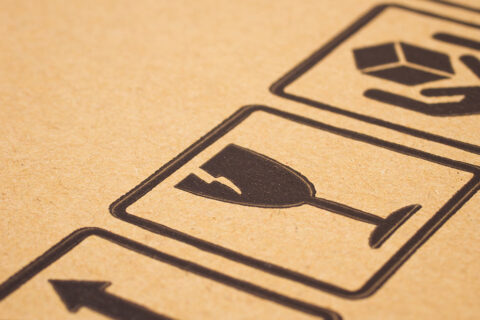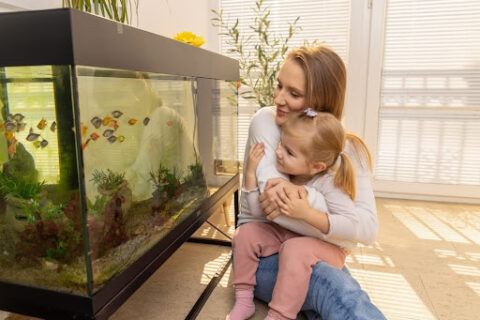The trouble is that some of these items are dangerous or difficult to dispose of. When you’re in a hurry to move, how do you get rid of these items quickly and in a safe, responsible way?
Luckily, you’ll have the help of professional movers to remove troublesome items so that you can focus on other things during the move. With their assistance and the help of our dangerous items disposal guide (below), your move can go without a hitch.
Large Appliances
There are a few bulky, heavy items in your home that you just can’t justify moving to a new house or apartment. These items are too old or outdated to move-you’d rather just purchase a new refrigerator or washing machine anyway. But large appliances are difficult to throw away, and they pose a threat to the environment if they’re not disposed of safely.
Your moving company can help you move and get rid of large, bulky, or heavy items, including your unwieldy, hefty appliances. If needed, your professional movers can transport these appliances to your local waste management service, which dismantles large appliances and recycles them. The environment will benefit for the safe disposal of your large, outdated appliances.
Medicine
As you’re sorting through your medicine cabinet and sifting through old prescription medicine and expired over-the-counter drugs, you’ll likely decide that there’s no point in bringing old bottles and pills with you to the new house.
The problem is that throwing prescription medicine into your trash makes it easy for thieves and drug addicts to steal the drugs. It may seem unlikely, but the FDA has launched a large campaign warning against the irresponsible disposal of prescription drugs.
Some medicines include disposal instructions, which usually explain that the medicine can be safely flushed down the toilet or sink. You might also check your city’s official website and check for a community drug take-back program.
As a last resort, take medicines out of their original containers and then mix them with coffee grounds, kitty litter, or dirt. Doing so will make the medicine look less appealing to pets and children, and can also disguise the drugs from people going through the trash in search of prescription medicine. After you’ve mixed the medicine with an undesirable substance, put it in a sealable bag and throw it away.
Cleaning Supplies
You probably have hazardous chemicals stored all over your house, and especially in your garage. Common household chemicals include:
- Cans of gasoline, antifreeze, and other automotive chemicals
- Cans of old paint
- Household cleaning supplies like ammonia, tile cleaner, and drain cleaner
- Garden chemicals like fertilizers and pesticides
- Swimming pool chemicals
- Common bathroom materials like rubbing alcohol
Most of these items are not permitted on a moving van due to their hazardous nature, so you will have to get rid of them before you move. But how? Many of these materials are hazardous chemicals that would be dangerous to throw away or flush down the toilet because they could contaminate groundwater.
Your community has a pick-up service or drop-off facility so that your hazardous chemicals can be disposed of by professionals. You should bottle your chemicals in secure containers so that they don’t leak. Be sure not to mix chemicals if you need to repackage anything. Clearly label each container, and drop them off at your community’s hazardous waste facility.
Small Appliances
You may be purchasing new small appliances such as a microwave, toaster, television, or blender for your new home-which means that your older appliances need to be thrown out. You can’t just place these items in a dumpster, however; they contain metal and chemicals that are environmentally hazardous.
These appliances can be disposed of by professionals, but you might consider recycling as well. Appliance retailers like Best Buy participate in government-funded recycling programs, so all you have to do is collect your outdated, broken small appliances and drop them off at a participating recycler.
As in the case of dangerous chemicals and prescription medicines, your community likely has a pick-up system for small appliances as well. If you choose to dispose of your appliances rather than recycle them, your local waste management company can help you get rid of the appliances in an environmentally safe way.
Sharp Items
You may have old, dull knives or a few needles that you need to toss before you move. But be careful-in many places in the US, it is illegal to throw away needles, knives, or syringes in your household trash. Put all sharp items in a safe container (the kind sold specifically for sharps containment; you can purchase them at your local pharmacy), mark them as non-recyclable, and contact your waste disposal service.
If you have further questions about what is dangerous to throw away or how you should dispose of a specific item, speak with your professional moving company. Your moving team can help you identify dangerous items and dispose of them in a responsible, safe way.

